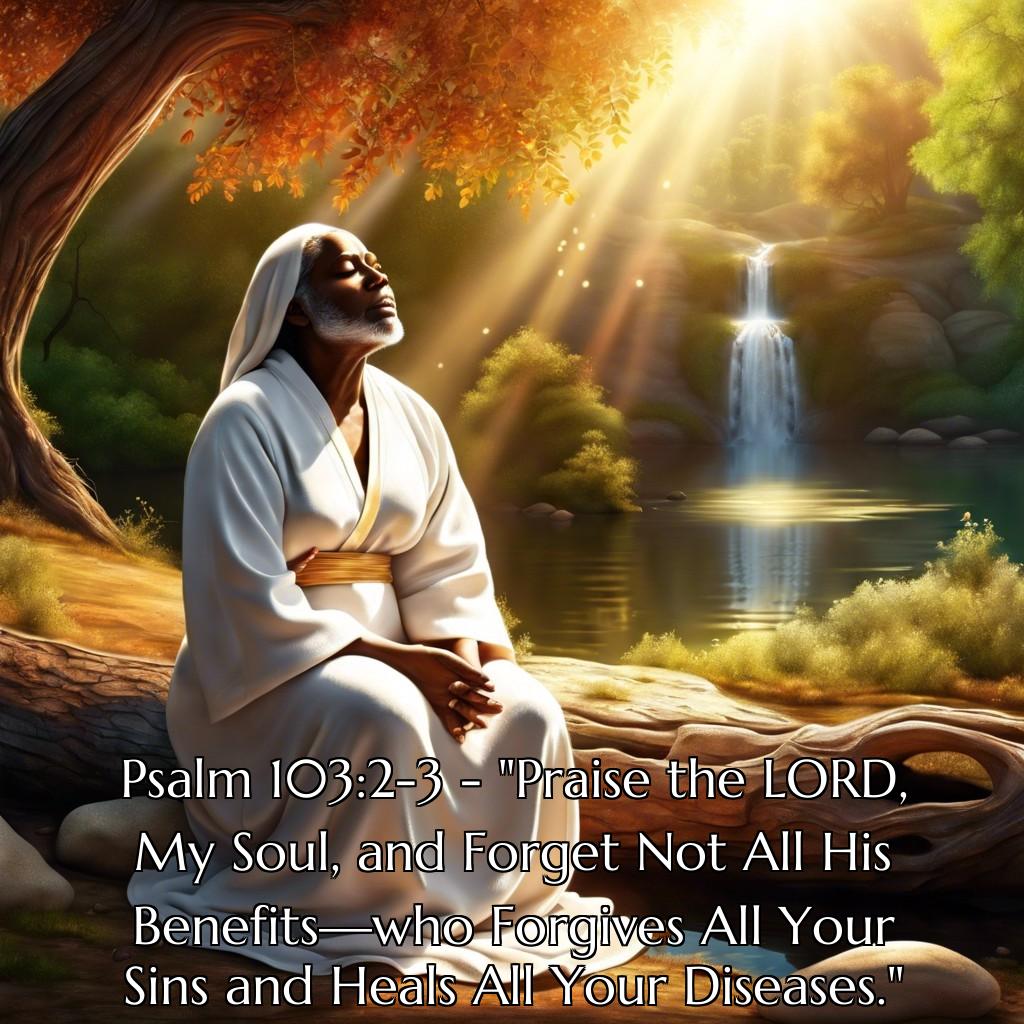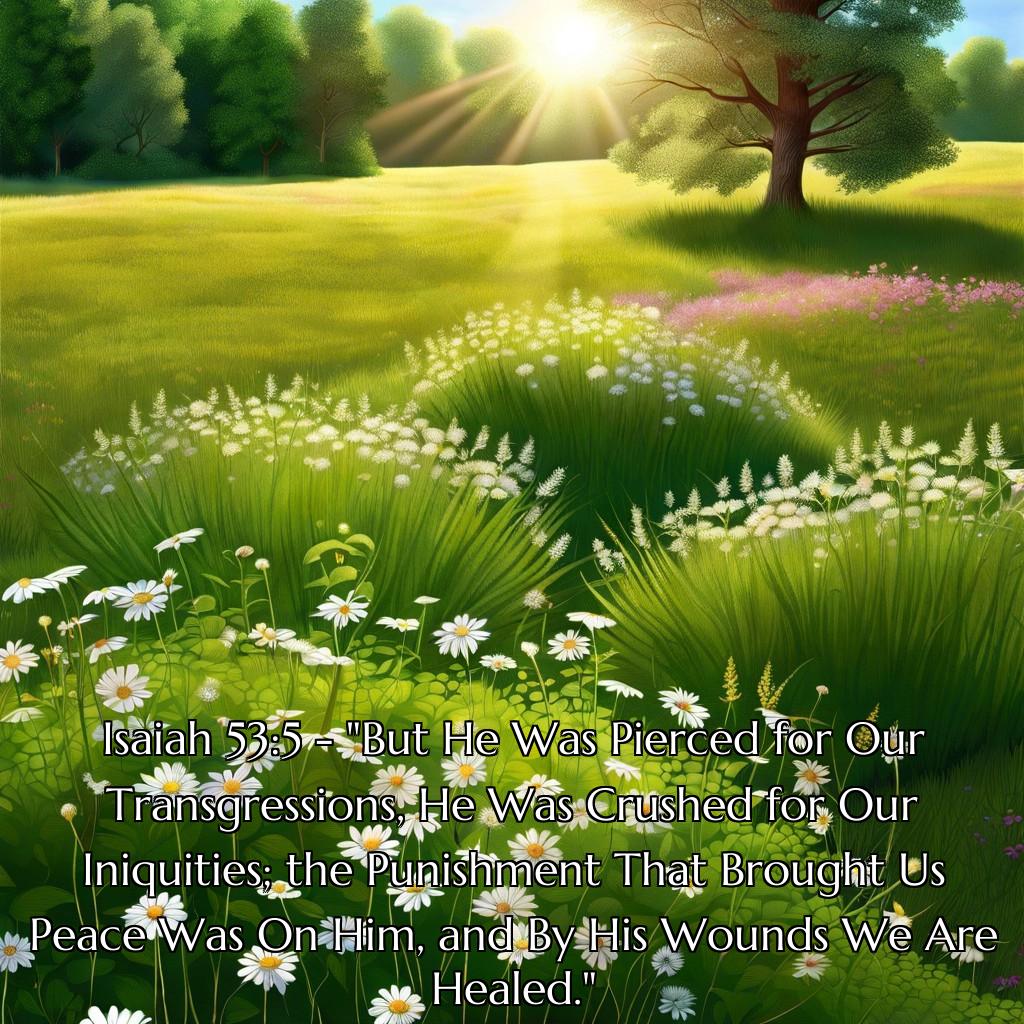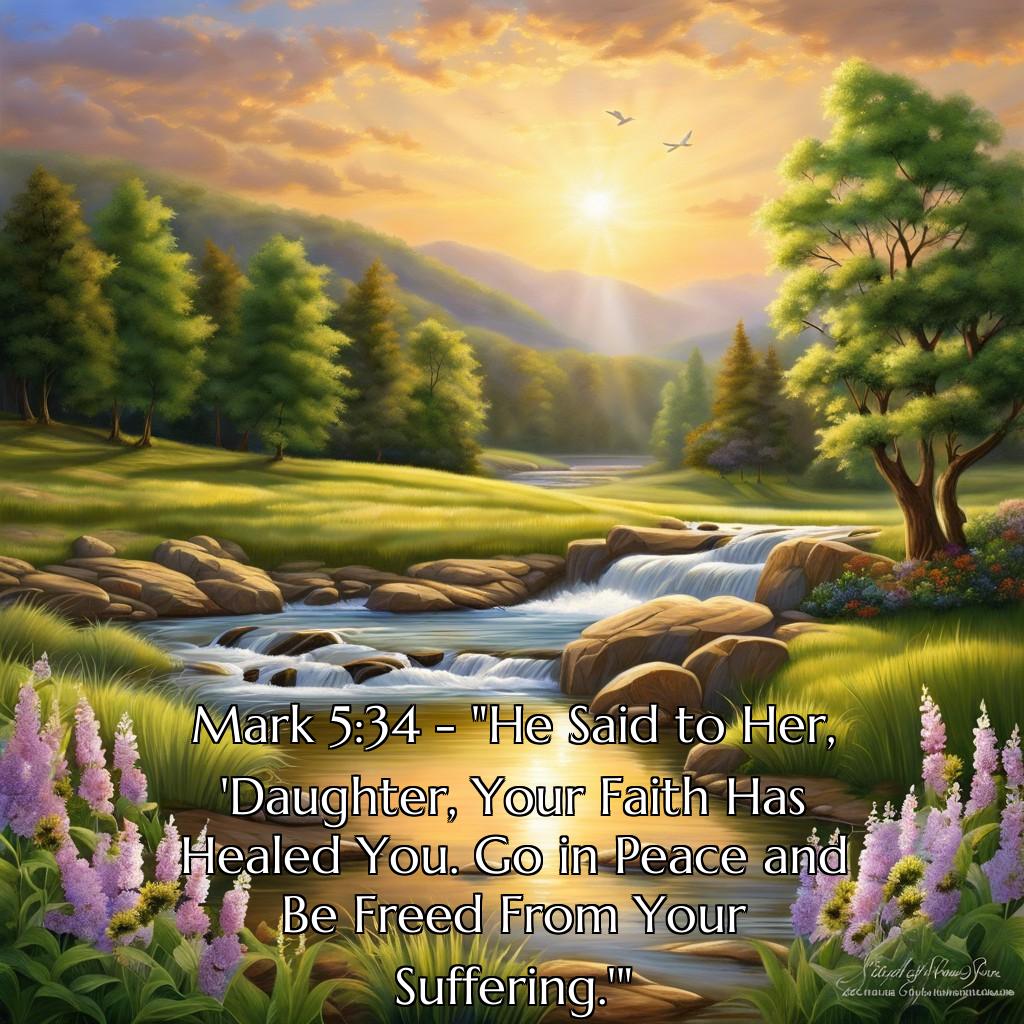This article lists ten Bible verses about healing, providing their full text and meanings to help you find comfort and strength.
Healing is a profound theme woven throughout the Bible, offering hope and comfort to those in need. In exploring these verses, you will uncover the rich tapestry of God’s promise to heal both the body and the soul. Each scripture provides a unique lens through which divine healing is revealed, making this compilation a valuable resource for anyone seeking spiritual restoration. Dive into these powerful passages to discover divine reassurance and guidance for your healing journey.
Exodus 15:26 – “He Said, ‘If You Listen Carefully to the LORD Your God and Do What Is Right in His Eyes, If You Pay Attention to His Commands and Keep All His Decrees, I Will Not Bring On You Any of the Diseases I Brought On the Egyptians, for I Am the LORD, Who Heals You.'”

This verse highlights God’s promise of healing tied to obedience. It emphasizes that aligning our actions with God’s will is crucial for experiencing His protection and healing. Here are some key points to consider:
- God promises health to those who diligently follow His commands.
- It’s a conditional promise: listening and obedience are required.
- The verse reflects God’s nature as a healer, which differentiates Him from other deities.
- It underscores the importance of living a righteous life for divine favor.
- The reference to the diseases of the Egyptians serves as a stark warning and reminder of God’s power.
Understanding this helps recognize the holistic nature of God’s care—spiritual, physical, and moral health are interconnected. This divine principle encourages a lifestyle of faith and obedience for overall well-being.
Jeremiah 30:17 – “‘But I Will Restore You to Health and Heal Your Wounds,’ Declares the LORD, ‘because You Are Called an Outcast, Zion for Whom No One Cares.'”

Jeremiah 30:17 provides a beautiful promise of restoration and healing. It’s a reassuring message for those feeling abandoned or disregarded.
Firstly, God acknowledges our suffering. Being seen as an “outcast” underscores feelings of isolation. God’s recognition of this pain is the first step towards healing.
Secondly, there’s a promise of health and restoration. This isn’t limited to physical healing but also emotional and spiritual renewal. God offers a holistic remedy for our wounds.
Lastly, the declaration “for whom no one cares” highlights God’s character as a compassionate healer who steps in when we feel alone. It’s a reminder that even when human support fails, divine help is always available.
These points emphasize that God’s healing transcends mere physical ailments, enveloping our entire being.
Psalm 103:2-3 – “Praise the LORD, My Soul, and Forget Not All His Benefits—who Forgives All Your Sins and Heals All Your Diseases.”

The Psalmist reminds us not to forget the encompassing goodness of God. It emphasizes His dual role as both forgiver and healer, connecting physical and spiritual restoration.
Forgiveness of sins is a cornerstone in many biblical texts. This verse highlights its importance as integral to experiencing comprehensive well-being. God’s willingness to heal should be celebrated just like His forgiveness.
Healing in this context is not limited to physical ailments. It extends to emotional and spiritual healing, reflecting a holistic approach to health. This multifaceted healing underscores God’s power to restore all aspects of our lives.
Acknowledging these benefits fosters gratitude and deepens our relationship with God. It encourages us to trust in His capable and compassionate nature.
Isaiah 53:5 – “But He Was Pierced for Our Transgressions, He Was Crushed for Our Iniquities; the Punishment That Brought Us Peace Was On Him, and By His Wounds We Are Healed.”

This verse from Isaiah is profound, highlighting the suffering of Jesus and the salvation offered through his sacrifice. It emphasizes key points:
- Jesus was inflicted with pain and suffering because of our sins, revealing the deep connection between divine suffering and human wrongdoing.
- His punishment brought us peace, demonstrating that his sacrifice was meant to restore our relationship with God.
- By his wounds, we are healed. This phrase indicates both spiritual and physical healing made possible through his suffering.
The imagery here is powerful, bridging the gap between Old Testament prophecy and New Testament fulfillment. Isaiah’s words offer comfort, assuring believers that Jesus’s sacrifices provide redemption and wholeness.
Matthew 8:16-17 – “When Evening Came, Many Who Were Demon-possessed Were Brought to Him, and He Drove Out the Spirits With a Word and Healed All the Sick. This Was to Fulfill What Was Spoken Through the Prophet Isaiah: ‘He Took Up Our Infirmities and Bore Our Diseases.'”

Jesus showcased his divine authority over illness and evil through miraculous healings. By evening, many afflicted individuals sought his touch. Jesus compassionately drove out demonic spirits and healed the sick with a simple word.
- Several key concepts emerge:
- Fulfillment of Prophecy: This act aligned with Isaiah’s prophecy, emphasizing Jesus as the long-awaited savior who takes on humanity’s sufferings.
- Divine Power: Demonstrates Jesus’ authority, emphasizing his role as a healer and redeemer.
- Compassionate Healing: His willingness to heal all who came to him shows his deep compassion and love for humanity.
This passage is a testament to Christ’s ability and willingness to heal, affirming his divine mission and compassionate heart.
James 5:14-15 – “Is Anyone Among You Sick? Let Them Call the Elders of the Church to Pray Over Them and Anoint Them With Oil in the Name of the Lord. And the Prayer Offered in Faith Will Make the Sick Person Well; the Lord Will Raise Them Up. If They Have Sinned, They Will Be Forgiven.”

This verse highlights the importance of faith, community, and forgiveness in the process of healing. It speaks to both physical and spiritual healing, emphasizing how interconnected they are.
First, it underscores the role of community in our healing journey. The act of calling elders to pray over the sick person embodies the strength and support of a faith-based community.
Second, the anointing with oil is a symbolic gesture representing sanctification and the presence of the Holy Spirit. It’s a tangible way to set apart the sick person for God’s special attention and care.
Third, faith is a crucial element of the healing prayer. The passage assures that faith-filled prayers have the power to make the sick person well. This is not about the oil or the elders alone, but the belief that God hears and answers prayers.
Lastly, it addresses forgiveness of sins. Healing is not just about the physical ailment; it can also be a moment for spiritual renewal. The verse suggests that God’s grace through faith can bring comprehensive healing, including forgiveness.
Mark 5:34 – “He Said to Her, ‘Daughter, Your Faith Has Healed You. Go in Peace and Be Freed From Your Suffering.'”

This verse highlights the powerful connection between faith and healing. Jesus addresses the woman as “Daughter,” emphasizing a personal and compassionate relationship.
Faith is key. The woman’s belief in Jesus’ power brought about her healing. It wasn’t just touching his cloak; it was her faith that made the difference.
Peace follows healing. Jesus assures her to “go in peace,” indicating that true healing affects both the body and soul.
Freedom from suffering. Healing in this verse is holistic, encompassing both physical ailments and emotional relief.
Compassion of Jesus. His response shows his attentive care and readiness to heal those who come to him with genuine faith.
Ultimately, this verse underpins the idea that faith, trust in Jesus, and his compassionate nature are central to experiencing complete and lasting healing.
Psalm 147:3 – “He Heals the Brokenhearted and Binds Up Their Wounds.”

Life can be tough, and our hearts often bear the brunt of life’s challenges. This verse from Psalms offers immense comfort. Here are some key ideas:
God acknowledges our pain. When we are brokenhearted, He sees our struggles, offering a source of solace and understanding.
Healing is both emotional and spiritual. This verse implies that God’s healing grace extends beyond physical wounds to our inner turmoil.
God’s care is personal. The use of “binds up their wounds” suggests a tender, attentive approach. He is like a loving physician, caring for each individual’s unique pain and sorrow.
Trust in the healing process. Healing may not be instantaneous, but placing faith in God’s promise brings hope and gradual recovery.
Scriptures like this remind us that divine support is always available, fostering resilience and perseverance.





